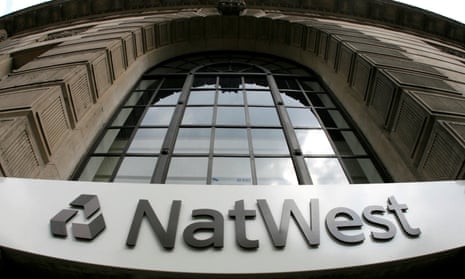Last week’s £264m penalty and criminal conviction for NatWest for money-laundering failures still takes the prize for the most spectacular collapse we’ve seen in years in a bank’s controls department. The saga, almost unbelievably, involved black bin bags, stuffed with as much as £700,000, getting through the system.
But more mundane control failures also count, and Standard Chartered, the Asian-focused but London-listed bank, limped into view on Monday with a £46.5m fine from the Bank of England’s Prudential Regulation Authority.
It’s a thumping penalty in its own right – the biggest imposed by the PRA acting in a solo capacity – and, beyond the dry technicalities of US dollar liquidity reporting requirements, one can understand why the regulator is annoyed.
The problem wasn’t just the size of Standard Chartered’s spreadsheet errors, which in one case amounted to $10bn, according to the PRA. It was also the fact that the bank seems to have taken a relaxed view of its obligation to report material mistakes promptly. The delay was four months in one instance. A regulator charged with keeping the system safe understandably takes a dim view of a failure to be “open and cooperative”; it needs accurate and timely data.
Standard Chartered’s shareholders also have a right to grumble. It’s now six years since Bill Winters arrived as a hot-shot chief executive, declaring he would invigorate the bank by sweeping away complexities and put previous regulatory entanglements in the past. On his watch, the share price has gone nowhere and growth is perpetually promised around the next corner. Collecting a large fine from the PRA rather sums up an underwhelming run.
More broadly, one can applaud what may be a new regulatory zeal to be tougher with banks on controls and reporting processes. HBSC was hit with a £64m penalty from the Financial Conduct Authority for “serious weaknesses” in anti-money laundering processes last year. If the intent is to force superbly paid boardrooms to pay attention to detail, so much the better. Some of the failures sound shockingly basic.
Ex-Tesco boss looks a good fit for GSK consumer division
Even Elliott Management, trying to stir things up in the wings, surely can’t find much to grumble about in the appointment of Sir Dave Lewis to chair GlaxoSmithKline’s soon-to-be-demerged consumer division, which owns brands such as Advil, Centrum vitamins, Panadol and Sensodyne.
Lewis is ex-Unilever, a company with which GSK’s consumer division will be compared, and, while his six years as chief executive of Tesco didn’t do much for the share price, he restored stability after the supermarket chain’s wild years. He hasn’t chaired a public company, but never mind.
The high-profile appointment is also a reminder that the business, which will get a name by the time it is launched in independent form in the middle of next year, is a big operation. If the City analysts’ estimates of £45bn-plus are correct, it’ll be a top-15 FTSE 100 company with a market capitalisation more than twice that of Tesco.
Size is perhaps the reason why Elliott’s call for GSK to consider offers for the business has failed to drum up interest. From the point of view of the renewal of the UK stock market, however, that’s a good thing. A demerger isn’t quite a new arrival, but a large new listing adds variety. And do not be surprised if the predicted rate of sales growth, a critical metric for global consumer companies, eclipses Unilever’s.
WEF moving from Davos to Zoom could raise its credibility
The last gathering of the World Economic Forum (WEF) in Davos took place in January 2020 and is mostly recalled for then-president Trump’s declaration that the new coronavirus was nothing to worry about. “It’s one person coming in from China,” he said, soon after the first case had been detected in the US. “We have it under control. It’s going to be just fine.”
Now next month’s Davos meeting has been postponed in the face of the inevitable, just as last January’s was. There’ll be a “digital convening” of business leaders, politicians and the usual crew of billionaires instead.
Actually, the new set-up sounds like an excellent permanent arrangement. Pre-Covid, it was impossible to take seriously a discussion about global inequality (to take one regular Davos theme) when it was happening in an elite Swiss ski resort with key speakers flown in by private jet. After Covid, a Zoom-only affair would be a small step towards restoring credibility.

